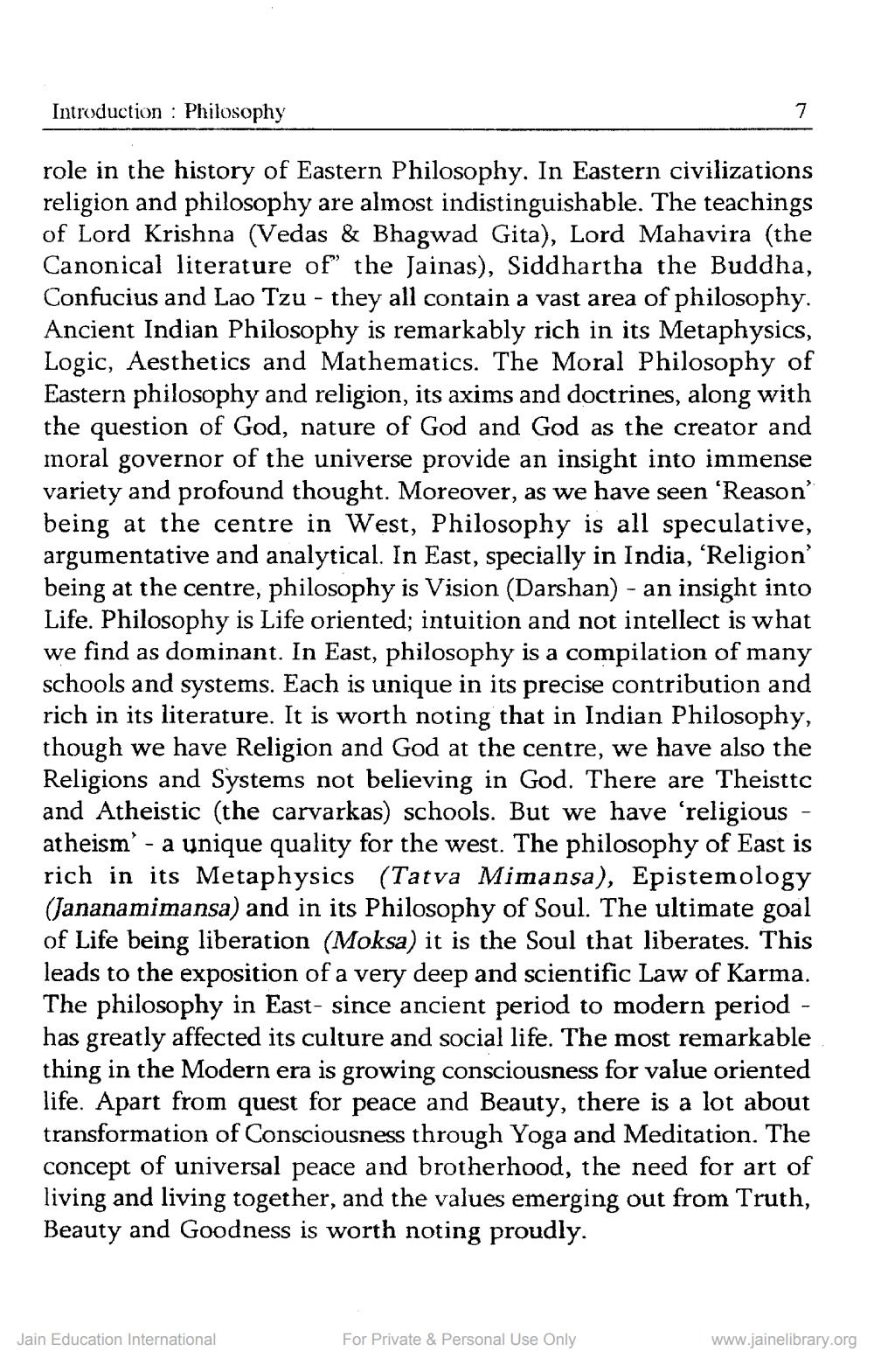________________
Introduction: Philosophy
role in the history of Eastern Philosophy. In Eastern civilizations religion and philosophy are almost indistinguishable. The teachings of Lord Krishna (Vedas & Bhagwad Gita), Lord Mahavira (the Canonical literature of" the Jainas), Siddhartha the Buddha, Confucius and Lao Tzu- they all contain a vast area of philosophy. Ancient Indian Philosophy is remarkably rich in its Metaphysics, Logic, Aesthetics and Mathematics. The Moral Philosophy of Eastern philosophy and religion, its axims and doctrines, along with the question of God, nature of God and God as the creator and moral governor of the universe provide an insight into immense variety and profound thought. Moreover, as we have seen 'Reason' being at the centre in West, Philosophy is all speculative, argumentative and analytical. In East, specially in India, 'Religion' being at the centre, philosophy is Vision (Darshan) - an insight into Life. Philosophy is Life oriented; intuition and not intellect is what we find as dominant. In East, philosophy is a compilation of many schools and systems. Each is unique in its precise contribution and rich in its literature. It is worth noting that in Indian Philosophy, though we have Religion and God at the centre, we have also the Religions and Systems not believing in God. There are Theisttc and Atheistic (the carvarkas) schools. But we have 'religious atheism - a unique quality for the west. The philosophy of East is rich in its Metaphysics (Tatva Mimansa), Epistemology (Jananamimansa) and in its Philosophy of Soul. The ultimate goal of Life being liberation (Moksa) it is the Soul that liberates. This leads to the exposition of a very deep and scientific Law of Karma. The philosophy in East- since ancient period to modern period has greatly affected its culture and social life. The most remarkable thing in the Modern era is growing consciousness for value oriented life. Apart from quest for peace and Beauty, there is a lot about transformation of Consciousness through Yoga and Meditation. The concept of universal peace and brotherhood, the need for art of living and living together, and the values emerging out from Truth, Beauty and Goodness is worth noting proudly.
Jain Education International
For Private & Personal Use Only
7
www.jainelibrary.org




